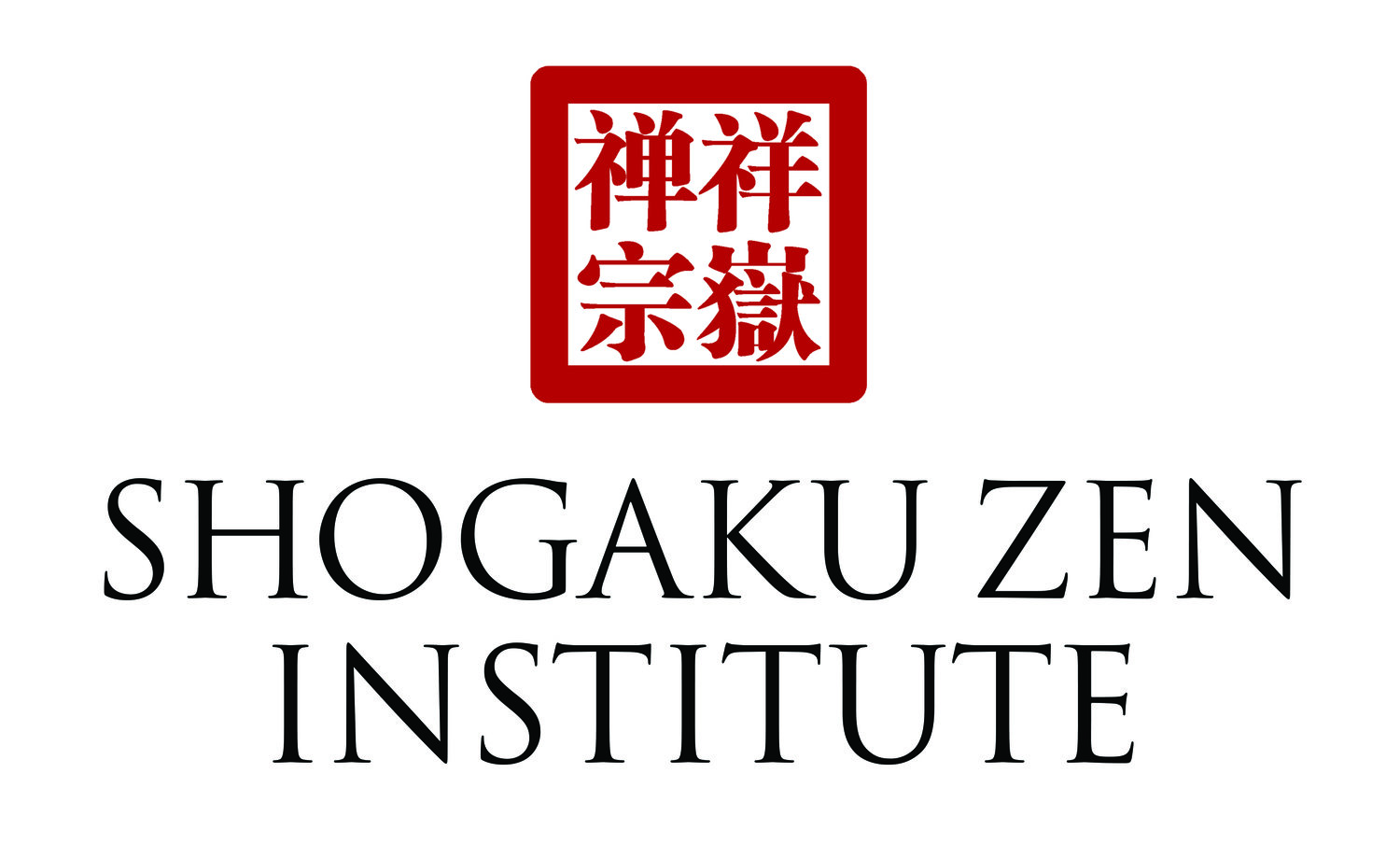SZI Professional Chaplain-Specific FAQs
Overview
Receiving a Masters in Divinity (M.Div) can be an important step in one’s own faith formation in addition to gaining a wide range of academic and practical learning necessary to provide spiritual care to others. The M.Div degree itself is recognized in the U.S. as an important 3-year graduate-level degree typically conferred by a faith-specific (Christian denominations) seminary. Secular universities are also increasingly offering M.Div degrees that allow the student to specialize in their own tradition, while gaining in-depth exposure to other faith traditions. Still other programs offer a path for those with non-Christian faith formation to earn a M.Div or its equivalent for that tradition.
Shogaku Zen Institute was designed to facilitate Zen Buddhists in documenting their years of practice and study, and to fulfill additional graduate course requirements to obtain an MDiv. SZI graduates may use this degree in their work as Buddhist ministers, leading communities or other faith-based spiritual care.
Many SZI graduates have the intention of becoming a professional Board Certified Chaplain (BCC). This is a credential needed to work professionally in healthcare, prisons, or the military. The M.Div is one of several prerequisites to apply for board-certification. The link below will take you to a website about the multi-step process of becoming a professionally credentialed chaplain through BCCI, the credentialing arm of the Association of Professional Chaplains.
https://www.apchaplains.org/bcci-site/becoming-certified/
We also hope to answer many of your questions here:
Is an MDiv necessary for Buddhists?
If you intend to work in a professional capacity in spiritual care in healthcare, prison or military setting, an M.Div is increasingly required for people of all faith-formations. An M.Div or its equivalent is a prerequisite to board-certification. The M.Div must be from an accredited American Theological Society (ATS) seminary https://amtheosoc.org/?page_id=57 or WASC-accredited academic program https://www.acswasc.org/ or from an institution that can demonstrate its equivalency if not accredited by one of these entities.
What is M.Div Equivalency?
In 2006, the BCCI created a path for Buddhists to demonstrate an equivalent graduate level mastery of their tradition’s texts and practices, as outlined in a White Paper: buddhist_white_paper.pdf. This path can take up to 18 months to document and have an MDiv equivalency committee review and approve.
Is SZI an Accredited Program?
SZI is approved by the State of CA to offer an MDiv in Zen Buddhism. SZI is not accredited by the ATS or WASC. This means that graduates have a legal MDiv degree, they may not apply for financial aid to the U.S department of Education. The M.Div degree is intended for professional credentialing rather than academic credentialing.
Does BCCI accept SZI M.Div?
SZI graduates who have submitted their MDiv transcripts to BCCI have had their M.Div approved. SZI transcripts show the credit hours earned for each category from a standard MDiv degree program for transparent comparison to other M.Div transcripts. BCCI recommends allowing 6 weeks for review of M.Div equivalency documents. Most SZI graduates have received approval within a few weeks due to SZI’s streamlined, transparent process.
What prerequisites must be obtained and submitted before applying for Board certification?
- Undergraduate transcripts from an accredited program (or equivalent).
- MDiv transcripts from accredited program (or equivalent).
- 4 Units of Clinical Pastoral Education (CPE) from an APCE accredited program.
- Letter of ordination/ endorsement for chaplaincy by an authorized person in a recognized faith tradition. (Please check with BCCI to ensure your faith tradition is recognized; further steps may be required if not.)
What is CPE?
Clinical Pastoral Education (CPE) is an interfaith professional education for ministry and personal development. CPE prepares one to serve as a spiritual care provider in many contexts.
https://www.icpt.edu/what-is-cpe.html
Must I complete CPE through an APCE accredited program?
Yes, you will need to complete 4 units (1 year full time equivalent) of Clinical Pastoral Education at an APCE accredited program to apply for board certification with the BCCI. Most employers such as hospitals require APCE-Accredited CPE, even if they do not require board-certification as a condition of employment.
https://acpe.edu/programs/accreditation
Does SZI ordain or endorse for chaplaincy?
No, SZI is a degree-granting program. As with other faith traditions, please check with your home temple or practice community for guidance on the process for ordination and / or endorsement for specific ministries such as chaplaincy. Please check with BCCI to obtain a list of their currently recognized Buddhist faith groups.
Should I consider the Spiritual Care Association (SCA) affiliated CPE programs and their Board Certification process instead of the BCCI process?
Individuals should weigh their longer term goals before committing to this path. While SCA can offer a shorter route through board certification, this BCC may be more professionally limiting. Many hiring institutions such as hospitals will require CPE from an APCE accredited program as THE standard in training. They will also require board certification from the BCCI, the affiliate of Association of Professional Chaplains and cognate groups.
How long does it take to become a Board Certified Chaplain?
The process to become a professional board certified chaplain can take 8-10 years or more, inclusive of 3-year graduate level MDiv degree, 2+ years in your own faith-tradition’s formation, ordination and endorsement process, 1 year CPE, 1 year work in the profession post CPE, and an average of 18 mo. to complete the BCC application and committee interview process.
If I don’t want to be a professional board certified chaplain, is there a benefit of getting an MDiv from SZI?
Yes. You have committed considerable time and effort to study and train. Your tradition may or may not have recognized you as a “Master.” However, you have been mastering something. Let’s give you credit for this, and fill in the gaps, so that you can claim a Master of Divinity. The benefit will be that you feel the authority to be a spiritual leader in a world that sorely needs it.
